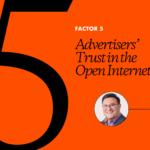This Q&A is part of a series highlighting the amazing media leaders at OpenWeb’s partners. If you’d like to be featured in an upcoming Q&A, please let your Partner Success Manager know!
TechRaptor is a publication with the goal to help gamers of all kinds get the most out of their gaming experience. The brand has grown significantly since 2013, becoming one of the premiere gaming sites for news, reviews and more.
We recently had the opportunity to catch up with TechRaptor’s Founder and CEO, Rutledge Daugette, to talk about their approach to community, what’s next for them in their community strategy, as well as what’s happening in the market today and in the next 3-5 years. Read on for insights from Rutledge.
Tell us about TechRaptor.
I started TechRaptor on a whim back in 2013 because I wanted a place to talk about technology and gaming—and to try to do it better than places I’d written for before. We had a rough start, it took me a little over 5 years to really figure out how to build a team, site, and business.
But we didn’t really take off until I put a big focus on internal culture and building a team that is respected, inclusive, and well-compensated, alongside improving how we evaluate and publish content. I’ve wanted to build a culture where people truly come before profits. I wanted to build a solid place for gaming writers to come together and be treated fairly. The gaming industry isn’t always so open and inclusive, so creating that welcoming environment was a huge goal of mine.
Luckily, it’s been working well for us. We’ve experienced 300% growth year-over-year the past 4 years.
What is TechRaptor’s approach and philosophy about community?
Frankly, it wasn’t a focus in the beginning. It was mostly about the content itself and bringing together the best writers. But in recent years, we’ve realized that driving a community is one of the most important ways to keep readers engaged, and coming back day after day. We grew our traffic significantly, but we needed to figure out – how do we keep them coming back?
Community has become more central to the business, and with this change we move away from a basic commenting system to a full community platform. Today, we are exploring all the avenues for how to build a thriving community, making it part of our overall mission to extend that same inclusivity and openness that we built with the TechRaptor team to our audience.
How do you see your community approach evolving now with OpenWeb?
What I’m most excited about is using the data and analytics to further shape our editorial strategy — what are people commenting on, liking, reviewing, engaging with? We’re also looking forward to having our journalists engage directly with our audience through the multiple tools OpenWeb offers. This product is a key component of our future approach to the user experience, and we can’t wait to unlock more use cases to engage our readers.
What are you most excited about in the media industry right now?
The industry is at an exciting point right now, because the tides are changing. We’re moving away from this broken system of content at scale, at lowest cost possible, regardless of the quality of content. Now, organizations are starting to realize that quality content will always win. And good quality content is created by paying a good price to the talented writers that deserve it.
Bad practices in the advertising industry, like clickbait, are also starting to be on the way out. It’s not about tricking readers into a click, and readers are starting to wise up to sites that abuse their search intents. Focus needs to be on what the reader wants and creating content and presenting ads that fulfill those desires. Ultimately, it’s going to hurt a lot harder by following bad practices rather than focusing on quality, long term, especially as Google and Social Media sites change their algorithms towards a content quality focus.
What future trends do you see coming up in the next 3-5 years?
Taking care of your people is one I’m really hoping picks up. The way that media companies currently pay writers is broken. Your team should not have to invoice you and wait 60 days to get paid, and those that do take advantage of their teams are getting a bad reputation that will hurt them longer term. At TechRaptor, when an editor hits publish, the writer gets paid—we use a fantastic product called OutVoice to do it. For sites to continue to draw top talent, this is the way they want to go, especially in the gaming industry.
Going beyond purely just pay, too – the biggest problem in the gaming media industry, and also the hardest to correct, is that many outlets don’t consider time in game as part of the job, which only leads to more working time for the incredible people who create content. I’m working to address this as we grow, raising our rates to match expected work, alongside offering solid PTO for our full-time team and news writers, and not only including play time as part of their hours, but also flex time that allows them to rest before or after game releases that require more than standard working hours. To me, this is the best way to take care of my team – giving them time off and flexible hours that help prevent burnout.
There also needs to be effort put into taking care of the communities we serve and the world around us. We’ve been able to make a lot of donations during major world events. and TechRaptor supports organizations like Safe In Our World as we (and I) are very passionate about mental health. It’s our job, as a platform, to talk about and support our societal issues and find ways to help those around us.
The final big one, of course, is first-party data. Sites and ad networks aren’t ready for life without cookies. Even with the delay, there will be sites and publishers without cookies that won’t be able to glean better data and analytics on what content is being consumed and how. Or even how to categorize your content correctly, like building taxonomies that you can pull data from. It’s all about understanding your readers better, to inform a better editorial policy, which will lead to more page views and happier readers.


